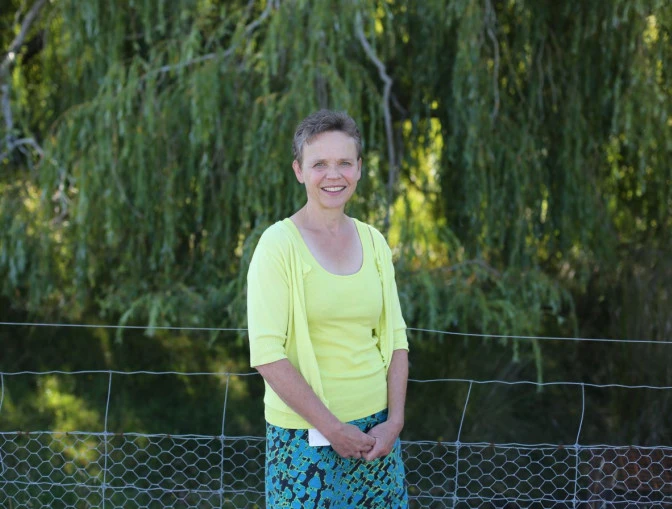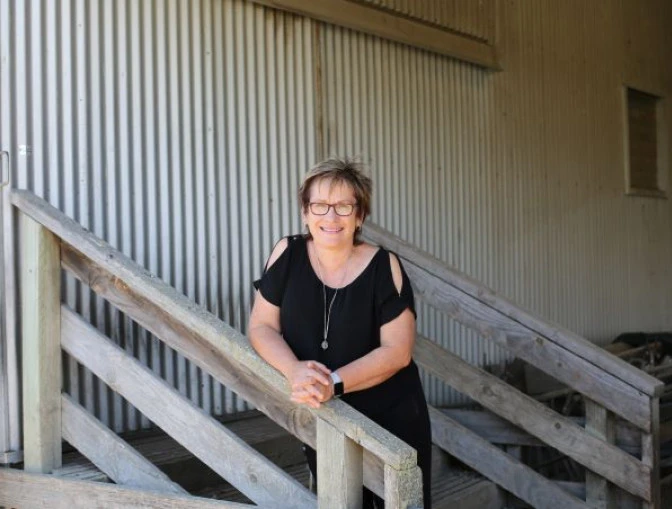New Zealand
April 19, 2024
Living labs that bring together expertise at locations around New Zealand are among potential solutions identified by researchers to help the country move towards a more climate resilient future.
AgResearch scientists have floated the concept of these `living labs’ or regional hubs – similar to climate initiatives undertaken in other like-minded countries – that could serve as models for farming in a way that reduces greenhouse gas emissions and is adapted to the changing climate conditions.
The concept has emerged as one potential approach in a strategic look at New Zealand’s efforts to achieve climate resilience. The process saw scientists engage with numerous organisations and experts across industry, government and interest groups.
“The strategy discussions we’ve had over the last couple of years with the various sectors have been incredibly useful in identifying and agreeing the key challenges and opportunities for building climate resilience,” says AgResearch principal scientist Cecile de Klein.
“The theme that has come through most clearly from these discussions is the need to ensure whatever we do to build resilience is integrated across the sectors and communities. For us as scientists, that means being alongside farmers and industries to understand the issues they face as they change the way they operate, as well as meeting government expectations through policy and the needs of communities that are affected by a changing climate.”

AgResearch principal scientist Cecile de Klein
On the living labs/regional hubs scenario, the scientists envisage a user-centric approach that recognises there is no single solution, and different opportunities in different regions.
Sites could act as bases to test, validate and refine complex climate solutions in a real-life context, while ensuring the work is grounded in the science and incorporates mātauranga Māori (knowledge) and Te Ao Māori principles. They see opportunity for collaborating with living lab or regional hub programmes that operate in countries such as Australia and Canada.
The Canadian Living Laboratories Initiative brings together farmers, scientists, and other collaborators in a nationwide network to develop and test innovative practices and technologies to address environmental issues, including mitigating and adapting to climate change. A core principle is a focus on farmers’ needs: “Farmers not only test the proposed innovations, they contribute knowledge and experience to their development and improvement at every step”.
AgResearch senior scientist Robyn Dynes says New Zealand already has some unique advantages when it comes to building climate resilience. It is a world leader on research that includes greenhouse gas measurement, life cycle assessment of agricultural products, and development of greenhouse gas mitigations such as breeding low methane-emitting livestock.
“What came through clearly in our strategy discussions with those from related sectors is that we need to maintain our strengths in those research areas, but also have an increased focus on adaption to the changing climate and `future-proofing’ as best we can the farming systems that are so important to New Zealand’s economy and social fabric,” Dr Dynes says.
“We also see scope in increased partnership on important areas like on-farm carbon sequestration, where farmers and industries can potentially make a difference on environmental impacts and potential future costs for their businesses.”

AgResearch senior scientist Robyn Dynes
An increasing alignment of the resources of government and industry on climate change in recent years has been encouraging to those working in this space. Bodies such as the Centre for Climate Action on Agricultural Emissions had been established to accelerate research and development of tools to reduce agricultural emissions, and initiatives such as the Biological Emissions Reduction Science and Mātauranga Plan had helped to focus priorities.
Since then, AgriZeroNZ – a partnership between agribusiness and the government – has targeted investments into research programmes led by AgResearch scientists that include development of a methane-reducing vaccine and inhibitors as well as boosting New Zealand’s capacity to measure methane emitted by cattle in respiration chambers.
David Pacheco, now a principal science advisor for the New Zealand Agricultural Greenhouse Gas Research Centre and a participant in the strategy discussions, says the ongoing commitment and certainty of research funding is critical to ensure that the country continues to make progress on the journey to climate resilience.
“If we’re serious about becoming climate resilient as a country, we have to be committed to this goal across the board. It has been pleasing to us through this strategy process to see that shared commitment does exist across the various sectors that will be impacted by climate change.”